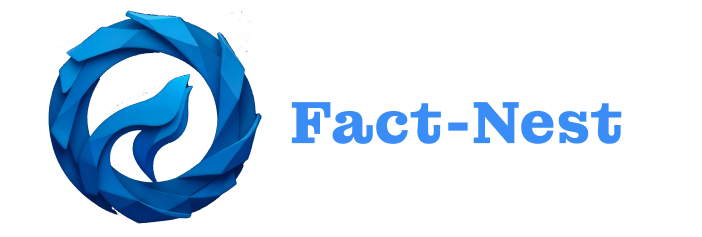Summary
AI-powered room checkouts are an emerging technological innovation transforming the hospitality industry by automating and streamlining the guest departure process. Leveraging intelligent algorithms and data analytics, these systems enable hotels to expedite checkouts via mobile apps, in-room devices, or kiosks, significantly reducing wait times and minimizing staff involvement while maintaining personalized service quality. Beyond accelerating departures, AI-driven checkouts integrate with broader hotel operations—such as billing reconciliation, smart housekeeping scheduling, and dynamic revenue management—to enhance both guest satisfaction and operational efficiency.
This technology builds on the growing adoption of AI across the hotel sector, where personalized guest experiences are crafted through real-time adjustments of room environments, tailored recommendations, and automated concierge services. AI-powered systems also facilitate communication in multiple languages, handle routine inquiries, and collect guest feedback post-stay, collectively elevating service delivery and fostering loyalty. Furthermore, integration with mobile key technology and IoT devices supports seamless room access and energy management, contributing to sustainability goals.
Despite these benefits, AI-powered room checkouts raise notable challenges and controversies, particularly regarding data privacy and security. Concerns include the creation of “shadow accounts” that retain customer data without explicit consent and the pervasive use of monitoring technologies that may undermine guest anonymity and trust. Additionally, high implementation costs, technical complexities, and the need to balance automation with human interaction pose obstacles—especially for smaller hotels and independent operators.
Looking ahead, AI-powered checkouts are expected to evolve with advances in generative AI, IoT integration, and hyper-personalization, further reshaping hotel operations and guest experiences. Successful adoption will depend on strategic management, ethical data practices, and scalable solutions that accommodate diverse property sizes and guest expectations. As the hospitality industry increasingly embraces AI, room checkouts stand as a key frontier for innovation, efficiency, and enhanced customer service.
Background
The integration of AI-powered technologies in the hospitality industry has significantly transformed guest experiences, particularly in the context of room checkouts and personalized services. Hotels increasingly leverage AI to customize various aspects of a guest’s stay, including adjusting room settings such as lighting, temperature, and music to match individual preferences, thereby enhancing comfort and satisfaction. These systems enable detailed customization of colors, materials, decorations, and finishes within rooms to create a tailored environment for each guest.
AI-driven platforms also contribute to operational efficiencies by optimizing housekeeping schedules based on real-time data about room occupancy and guest check-out times, reducing manual data analysis and improving labor allocation. Furthermore, AI supports smart check-in and check-out processes through mobile or kiosk-based solutions, some equipped with facial recognition to expedite procedures and reduce wait times. Chatbots are frequently deployed to handle common guest inquiries, freeing front-desk staff to focus on more personalized interactions.
Guest engagement throughout the stay is enhanced by AI-enabled concierge services that provide tailored recommendations, updates on local events, and fast responses to concerns. Post-stay, automated systems facilitate smart checkouts and the collection of reviews, contributing to higher reservation rates by allowing hotels to better understand and personalize guest experiences based on browsing behavior, preferences, and booking history.
Revenue management and direct booking strategies also benefit from AI applications. Advanced systems display real-time room pricing and availability within booking apps and send smart follow-ups to potential guests. Technologies such as OpenAI’s ChatGPT and Google Gemini are employed by platforms like Visito to enrich guest interactions and encourage positive reviews. Fully automated revenue management solutions help hotels maintain optimal room rates, thereby maximizing occupancy and profitability.
In parallel with these technological advancements, increased consumer awareness regarding privacy and data security has emerged, particularly following the pandemic-driven surge in online activity. A significant portion of online shoppers prefer guest checkout options, avoiding account creation due to privacy concerns. However, some retailers retain customer data in so-called “shadow accounts” linked to email addresses used during checkout, raising transparency issues. Additionally, the widespread adoption of ad-blocking software, including on smartphones, reflects growing consumer demand for privacy protection. This environment underscores the importance of transparency and data security in the deployment of AI-driven hospitality solutions.
AI-Powered Room Checkouts
AI-powered room checkouts are transforming the hotel industry by automating and streamlining the final guest interaction, significantly reducing wait times and enhancing overall guest satisfaction. Utilizing intelligent algorithms, these systems facilitate a seamless checkout process that minimizes the need for direct staff involvement while maintaining a high level of service quality.
Such automation enables guests to complete their checkouts through mobile apps or in-room devices, often integrated with mobile key technology, allowing for secure and remote processing. This not only expedites the guest’s departure but also frees hotel staff to focus on more complex and personalized guest needs. Additionally, AI systems can automatically reconcile billing, process payments, and handle any outstanding charges or requests in real-time, ensuring accuracy and reducing errors common in manual processes.
Beyond speed and convenience, AI-powered checkouts contribute to personalized guest experiences by leveraging data from the entire stay. For example, AI can analyze guest preferences and previous interactions to offer tailored recommendations or upsell opportunities during the checkout phase. Furthermore, conversational AI and virtual assistants can assist guests in resolving queries or making last-minute requests before departure, providing 24/7 support and a human-like interaction.
The integration of AI in room checkout processes also supports operational efficiency by feeding data into revenue management and forecasting systems, enabling hotels to optimize pricing and staffing based on real-time insights. From an environmental perspective, automated checkouts paired with smart room controls can help ensure that energy usage is minimized once guests leave, contributing to the hotel’s sustainability efforts.
Features and Functionality
AI-powered room checkout systems offer a comprehensive suite of features designed to enhance the guest experience while streamlining hotel operations. One of the core functionalities is personalized guest interaction, where AI collects and analyzes guest data to tailor room amenities, suggest local attractions, and provide customized offers and promotions. Intelligent virtual concierge services assist guests with check-in and check-out processes, booking services, and answering inquiries in over 100 languages, ensuring seamless 24/7 support.
These systems also incorporate automated room control and smart housekeeping management. For instance, room environments can be adjusted through voice-activated assistants, allowing guests to control lighting, temperature, and entertainment with ease. Housekeeping operations benefit from AI-driven demand forecasting and occupancy-based scheduling, optimizing cleaning shifts by analyzing check-in/check-out times and guest preferences to improve efficiency and resource allocation.
In addition, AI enhances hotel communication by automating guest messaging across multiple channels such as chat, email, and phone, reducing errors and enabling immediate responses to guest concerns. Post-stay features include smart checkout options and automated review collection, which encourage guest feedback and improve online reputation management.
Operational efficiencies are further supported through AI-powered procurement, staff scheduling, and invoice processing. Automated invoice extraction reduces manual errors by leveraging OCR and machine learning to map data accurately to accounting codes, while smart procurement systems analyze trends to optimize purchasing decisions. AI-driven staff scheduling utilizes real-time and historical data to balance workforce demands, preventing over- or understaffing and enhancing employee satisfaction.
Mobile key integration allows guests to unlock their rooms via smartphones, streamlining remote check-in and checkout processes while enhancing security. Furthermore, AI platforms detect early signs of guest dissatisfaction by monitoring communication patterns, enabling proactive staff intervention to resolve issues before check-out, thereby improving guest satisfaction and encouraging repeat visits.
Advantages
AI-powered room checkouts offer numerous advantages that significantly enhance both hotel operations and guest experiences. By automating repetitive and time-consuming tasks, such systems reduce the workload on staff, allowing them to focus on more strategic and guest-centric activities. For example, AI chatbots can handle routine inquiries and processes such as check-in, check-out, and room service orders, improving response times and reducing wait periods for guests. These chatbots also engage across multiple communication channels, including hotel websites and popular messaging apps, providing instant assistance that feels personalized and timely.
From an operational perspective, AI optimizes resource allocation by predicting peak periods and adjusting staffing levels accordingly. Housekeeping efficiency is improved through AI’s ability to analyze occupancy and check-out data, enabling better scheduling of cleaning shifts. Moreover, smart energy management systems powered by AI automatically adjust lighting, heating, and cooling based on occupancy, reducing both operating costs and the hotel’s carbon footprint. AI-driven dynamic pricing strategies maximize revenue by adjusting room rates in real time according to demand and market conditions, leading to increased RevPAR and higher occupancy rates.
On the guest side, AI streamlines the booking and checkout processes, minimizing friction and improving user experience. Features like sending check-in links before arrival reduce paperwork and speed up arrival procedures, while options such as “Book Now, Pay Later” increase booking flexibility and customer satisfaction. Enhanced personalization is another key benefit, as AI systems collect and analyze guest preferences, browsing behavior, and booking history to tailor marketing efforts and service recommendations. This level of customization can increase reservation rates and guest loyalty by making each interaction feel unique and attentive.
Additionally, AI-powered systems contribute to increased direct bookings by integrating pricing and availability information directly within booking platforms and sending smart follow-ups to potential guests. The automation of last-minute booking offers further boosts occupancy and profitability by presenting timely, limited-time deals. Overall, these AI capabilities help hotels improve operational efficiency, deliver superior guest experiences, and increase revenue, marking a significant step forward in hospitality management.
Implementation and Integration
Implementing AI-powered room checkout systems in hotels involves several challenges and strategic considerations to ensure seamless integration and maximize benefits. One primary hurdle is the high cost and complexity associated with adopting AI technologies, often requiring significant upgrades to legacy systems. This can be particularly burdensome for smaller venues with limited budgets, as the expense of new tools and the technical expertise needed may be prohibitive.
Effective integration demands careful change management to address staff expectations and resistance. Tailored training programs are essential, as different hotel roles require specific skill sets to interact effectively with AI systems. For example, front desk personnel might need training on AI-driven customer service tools, while housekeeping staff could focus on AI applications for inventory management.
From a technological standpoint, AI systems must be carefully selected and phased in to ensure compatibility with existing infrastructure and workflows. Successful implementations typically emphasize automation of routine tasks such as check-ins, check-outs, inquiries, and concierge services, which reduces wait times and allows staff to focus on more complex guest interactions. Additionally, AI can optimize resource allocation by predicting peak periods and adjusting staffing levels accordingly, improving operational efficiency and guest satisfaction.
Ethical considerations are also vital during implementation. Hotels must ensure that AI models are trained to avoid discrimination and biases and establish clear roles and responsibilities for ongoing oversight, maintenance, and decision-making related to AI systems.
Ultimately, a well-planned AI integration not only automates repetitive and time-consuming tasks but also supports smarter procurement decisions, optimized staff scheduling, and enhanced revenue management. Case studies have demonstrated tangible improvements such as a 10% increase in Revenue Per Available Room (RevPAR) following the adoption of AI-powered revenue management tools. These benefits underscore the importance of strategic planning and phased rollout approaches to overcome adoption barriers and leverage AI technology effectively within the hospitality industry.
Impact on Hotel Operations
The integration of AI-powered room checkouts significantly transforms hotel operations by enhancing efficiency, reducing costs, and improving guest experiences. Routine and repetitive tasks such as check-in, room service requests, and invoice processing can be automated, resulting in substantial labor savings and mitigating the challenges posed by ongoing staff shortages. For example, AI-driven systems like Inn-Flow Invoice Extraction utilize OCR technology to streamline financial workflows, reducing manual errors and accelerating accounting processes through continuous learning from historical data.
AI also empowers hotels to optimize operational workflows through intelligent computer systems and robotic assistants. Service robots can perform basic functions such as in-room deliveries and luggage pickups, allowing human staff to concentrate on delivering personalized guest interactions. Virtual assistants like EVA handle common guest inquiries including reservation modifications and local recommendations, alleviating the front desk’s workload while maintaining human-like conversational quality. Moreover, voice-activated assistants within hotel rooms further elevate the guest experience by providing seamless access to services and information.
Beyond task automation, AI enhances decision-making and strategic planning by leveraging data analytics and machine learning. Booking tools equipped with AI analyze guest preferences, market trends, and performance metrics to enable targeted marketing strategies and dynamic pricing optimization, ultimately increasing bookings by up to 30%. Natural language processing allows chatbots to understand and respond meaningfully to customer queries, continually improving through predictive modeling and machine learning based on each interaction. Training programs tailored for various hotel roles ensure that staff can effectively collaborate with AI tools, maximizing operational benefits.
Collectively, these AI-driven advancements lead to improved operational efficiency, reduced costs, and enriched personalized guest experiences, marking a significant evolution in hotel management and service delivery.
Case Studies
Several hotels have successfully implemented AI-powered room checkout systems, resulting in enhanced operational efficiency and improved guest satisfaction. A mid-sized hotel group reported a 10% increase in Revenue Per Available Room (RevPAR) after adopting an AI-driven revenue management system that updated room rates more precisely and more frequently than traditional manual methods. This highlights the potential financial benefits of integrating AI into hotel operations.
Hilton Hotels has been a pioneer in leveraging AI technology with their virtual concierge, Connie, powered by IBM Watson. Connie assists guests by providing personalized information about hotel amenities, dining options, and local attractions, thereby enriching the guest experience. Connie’s natural language processing capabilities enable seamless communication, contributing to faster and more tailored service.
Similarly, The Cosmopolitan in Las Vegas utilizes an AI chatbot named Rose, which guests can text for a variety of services including restaurant reservations and city tips, demonstrating how AI can enhance guest interaction and convenience. Aloft Hotels introduced a robotic butler called “Botlr” that delivers items directly to guest rooms, freeing staff to focus on other tasks and improving service efficiency.
Another noteworthy example is Visito, an AI-powered operating system that integrates with popular messaging platforms like WhatsApp, Instagram, and Messenger to automate over 97% of guest communications. This automation reduces support costs by up to 90% and boosts direct bookings by providing real-time room pricing and availability through these channels. Visito’s use of advanced AI models such as OpenAI ChatGPT and Google Gemini further enhances guest experience and increases positive reviews.
These case studies collectively demonstrate the diverse applications of AI in room checkout and guest services, showcasing benefits that range from operational cost savings and increased revenue to improved personalization and guest satisfaction.
Challenges and Limitations
The adoption of AI-powered room checkout systems in the hospitality industry presents several challenges and limitations. One of the primary obstacles is the high cost associated with implementing these technologies. Significant investments are required for software, hardware, and employee training, which can be particularly prohibitive for smaller hotels and independent operators with limited budgets. Moreover, integrating AI solutions often involves upgrading or replacing legacy systems, adding to the complexity and expense of deployment.
Another notable challenge is the technical complexity and the demand for human interaction. While AI can automate routine tasks, the need for personalized human service remains vital, especially for addressing complex guest requests and maintaining the hospitality experience. AI systems must be carefully designed to complement, rather than replace, human staff, ensuring seamless collaboration between automated tools and employees.
Data privacy and security concerns also pose significant limitations. In the current environment, guests are increasingly concerned about how their data is collected, stored, and used. Simply promising not to misuse data is insufficient; brands must demonstrate ethical handling and responsible use of customer information to build trust. The use of guest checkout features can
Guest Perspective
The integration of AI-powered technologies in hotel experiences offers guests enhanced convenience, personalization, and efficiency throughout their stay. For instance, smart room features allow guests to control lighting, temperature, and entertainment systems using voice commands or mobile apps, creating a more comfortable and intuitive environment tailored to their preferences. AI-driven chatbots and virtual assistants provide instant, multilingual support for booking, inquiries, and concierge services, improving responsiveness and accessibility around the clock. Post-stay, automated review requests and smart checkout options streamline the departure process, encouraging guest engagement and feedback.
Personalization plays a significant role in elevating guest satisfaction. By leveraging data on guest preferences, browsing behavior, and booking history, AI systems can offer tailored recommendations for local attractions, amenities, and special offers, fostering a more memorable and customized stay. Additionally, AI-powered automation reduces wait times and optimizes staff allocation, allowing hotel employees to focus on delivering personalized attention where it matters most.
Despite these benefits, some guests express concerns about privacy and the extent of AI-driven surveillance within hotels. The pervasive use of monitoring technologies may cause discomfort or apprehension regarding data security and compliance with local regulations. Transparency and adherence to privacy standards are therefore essential to maintain guest trust while implementing advanced AI solutions.
Management Adaptations
Integrating AI-powered room checkouts and other AI technologies into hotel operations requires thoughtful management adaptations to ensure successful implementation and adoption. Leading a hotel through this technological transformation involves careful planning to manage staff expectations, address concerns, and facilitate smooth transitions. Change management strategies, such as preparing checklists for managing resistance, are essential to help employees embrace new systems without disruption.
One of the primary challenges is the integration of AI with existing legacy systems, which may not be fully compatible with modern AI solutions. This can cause operational hiccups and frustrations for both staff and guests if the AI is underutilized or difficult to use. Additionally, the financial investment needed for AI adoption, including upgrades and staff training, can be significant, especially for smaller hotels with limited budgets.
Effective management must also optimize staff roles by leveraging AI to automate repetitive and time-consuming tasks, allowing employees to focus on strategic and guest-centric activities. AI systems can handle inventory management, booking processes, and predictive maintenance, which streamline operations and improve efficiency. Moreover, AI-driven tools can adjust staffing levels dynamically by predicting peak periods through data analytics, ensuring optimal resource allocation and enhanced customer satisfaction.
Personalized guest experiences, facilitated by AI-powered concierge and reservation systems capable of handling multilingual interactions 24/7, require managers to oversee a seamless blend of automation and human touch. Embracing these technologies not only improves operational workflows but also elevates guest engagement and loyalty. Overall, successful management adaptations hinge on balancing technological advancements with human factors to realize AI’s full potential in transforming hotel experiences.
Future Prospects
The future of AI-powered room checkouts in the hospitality industry is poised to revolutionize guest experiences through full automation, hyper-personalization, and seamless integration with Internet of Things (IoT) devices. Hotels are expected to increasingly adopt automated check-ins and checkouts, robot-assisted services, and AI-driven room controls that adapt dynamically to guest preferences, ensuring a highly customized stay.
Smart rooms equipped with AI-enabled IoT technologies will play a pivotal role in this evolution by automatically adjusting lighting, temperature, entertainment systems, and even mattress firmness to meet individual guest needs. Voice-activated room controls, powered by AI assistants such as Alexa or Google Assistant, will enhance convenience and accessibility, allowing guests to interact effortlessly with hotel amenities.
Moreover, AI systems will continue to optimize operational efficiency by automating repetitive tasks like reservations, inventory management, and predictive maintenance, which reduces downtime and ensures uninterrupted service quality. Predictive analytics and AI-driven revenue management tools will enable hotels to maximize revenue per available room by dynamically adjusting pricing and creating personalized marketing campaigns that increase direct bookings and margins.
Generative AI technologies, including chatbots and virtual assistants, are set to handle a growing proportion of customer service interactions—currently over 30%—leading to significant cost reductions and improved responsiveness. This shift will allow hotel staff to concentrate on delivering higher-level, guest-centric services, further enhancing overall guest satisfaction.
However, widespread implementation of these advanced AI solutions will require overcoming challenges such as high costs and complex integration with legacy systems, particularly for smaller operators with limited budgets. Strategic planning involving phased rollouts, careful software selection, and awareness of industry trends will be critical for successful adoption and competitive positioning.
The content is provided by Avery Redwood, Fact-Nest













